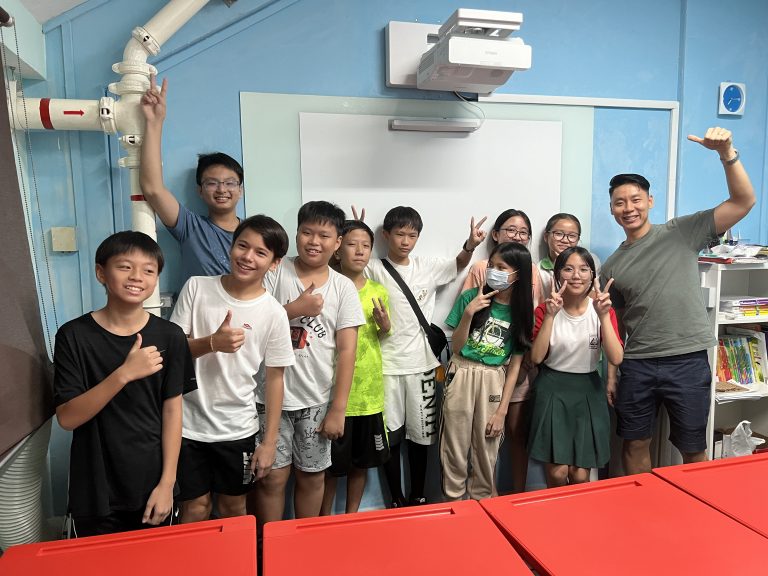
Top PSLE Preparation Tips: How To Score Well In PSLE Exam
The Primary School Leaving Examination (PSLE) is a significant milestone in every Singaporean student’s academic journey. It not only determines secondary school placement but also

The Primary School Leaving Examination (PSLE) is a significant academic milestone for children in Singapore. For many parents, it marks the beginning of a crucial transition phase in their child’s educational journey. As a parent, understanding the PSLE deeply and preparing your child effectively can make a world of difference, not just in scores, but in confidence, mindset, and future opportunities.
In this article, we’ve compiled 10 crucial things every parent in Singapore should know about the PSLE exam, along with actionable strategies and expert insights from our team at Stepping Stones Learning Centre.
The PSLE is a national examination taken by Primary 6 students in Singapore. Conducted by the Singapore Examinations and Assessment Board (SEAB), it assesses a student’s grasp of key subjects and determines their eligibility and placement in secondary schools.
The exam is designed to evaluate a child’s foundational knowledge and academic readiness for secondary education. It plays a crucial role in streaming students into different educational tracks such as Express, Normal (Academic), or Normal (Technical).
Your child’s PSLE score significantly influences which secondary schools and subject combinations they can qualify for. This is why understanding the stakes is important, but equally so is maintaining perspective and emotional balance.
The PSLE tests four core subjects:
Since 2021, the PSLE has used the Achievement Level (AL) scoring system. Each subject is graded from AL1 (best) to AL8 (lowest), and the total PSLE Score is the sum of all four subjects. This new system reduces stress by promoting mastery rather than intense competition.
Being aware of the PSLE schedule allows you to plan ahead and support your child through manageable milestones.
Preparation often begins as early as Primary 5, with a more structured plan implemented in Primary 6. Many families also begin considering PSLE tuition support during this time.
The main exam period usually takes place in September and October each year. Keep track of important registration and subject-specific dates on the MOE or SEAB websites.

Starting early helps reduce last-minute stress and allows for consistent learning.
Encourage your child to follow a structured timetable that balances schoolwork, revision, breaks, and play. The key is consistency, not cramming.
Identifying weak areas early helps avoid last-minute panic. Consider seeking support through targeted learning programmes like our PSLE Tution, which provides expert strategies and practice.
There are many misconceptions that cause unnecessary pressure.
While the PSLE is important, it does not define your child’s worth or potential. Many paths can lead to success, including later academic opportunities and personal development.
Tuition must be effective, not excessive. Quality over quantity is vital. Instead of overloading your child, choose programmes that focus on skills-building and confidence, like what we offer at Stepping Stones Learning Centre.

Academic stress is a growing concern among primary school students.
Irritability, sleep disturbances, or a sudden drop in academic interest can signal anxiety. Be observant and speak openly with your child about their feelings.
Promote mindfulness, ensure adequate sleep, and encourage open conversations. A calm home environment helps your child feel supported during this demanding period.
Not every child learns the same way or at the same pace.
If your child is consistently struggling with one or more subjects or losing confidence, it might be time to explore additional help. Our PSLE Tuition programme offers personalised coaching that adapts to individual learning styles.
Parents play a pivotal role in shaping the child’s mindset and study habits.
Stay involved, but don’t micromanage. Praise effort, not just results. Celebrate small wins and remain positive, even during setbacks.
Stay in touch with educators to monitor your child’s progress. At Stepping Stones Learning Centre, we keep parents updated with feedback and progress reports.
Equip your child with the right resources to boost their revision journey.
Explore platforms like MOE’s Student Learning Space (SLS), PSLE past year papers, and educational apps for subject-specific drills.

Every child’s PSLE journey is unique. If you need guidance on how best to support your child, please feel free to reach out to us today.
Our friendly educators are always ready to help with expert advice, programme recommendations, and one-on-one consultations tailored to your child’s needs.
Preparing for the PSLE is a journey that involves both academic discipline and emotional resilience. By understanding the process, staying involved, and seeking support when needed, you can empower your child to tackle the exam with confidence.
At Stepping Stones Learning Centre, we walk this journey with you. Whether through our PSLE Tuition or expert guidance, we’re here to support your family every step of the way.
In Singapore, all Primary 6 students are automatically eligible to sit for the PSLE, there is no separate qualification process. However, students are expected to complete the national primary school curriculum, including core subjects such as English, Mother Tongue, Mathematics, and Science. Attendance, participation, and academic engagement throughout the school year support readiness for the PSLE.
Yes, the Primary School Leaving Examination (PSLE) is unique to Singapore’s education system. It is administered by the Ministry of Education (MOE) and the Singapore Examinations and Assessment Board (SEAB) to assess Primary 6 students before they move on to secondary school. While other countries may have similar national exams, the PSLE is specifically designed for Singaporean students.
The best possible PSLE score is 4, which means a student has achieved AL1 (Achievement Level 1) in all four subjects—English, Mathematics, Science, and Mother Tongue. The lower the PSLE score, the better the result, as each subject is graded from AL1 (best) to AL8 (lowest), with the final score being the sum of all four.
Each subject in the PSLE is graded on an Achievement Level (AL) scale from AL1 to AL8. The PSLE score is the total of the ALs from all four subjects. For example, if a student scores AL2 in English, AL3 in Maths, AL1 in Science, and AL2 in Mother Tongue, their PSLE score would be: 2 + 3 + 1 + 2 = 8. A lower score reflects better performance.
No, calculators are not allowed in the PSLE Mathematics paper. Students must perform all calculations manually, which tests their numeracy, mental arithmetic, and problem-solving skills. Students need to practise without relying on calculators during their PSLE revision.

The Primary School Leaving Examination (PSLE) is a significant milestone in every Singaporean student’s academic journey. It not only determines secondary school placement but also

The Primary School Leaving Examination (PSLE) is a significant academic milestone for children in Singapore. For many parents, it marks the beginning of a crucial
